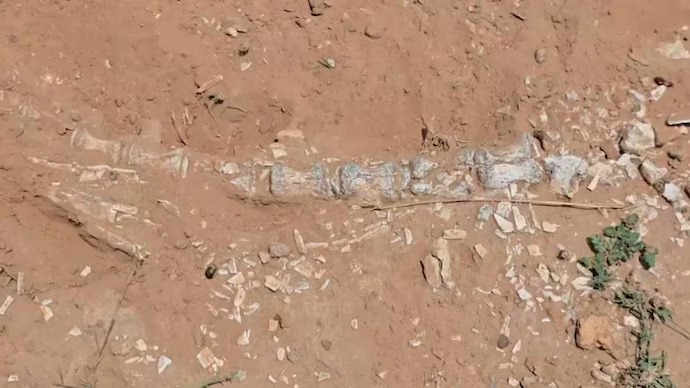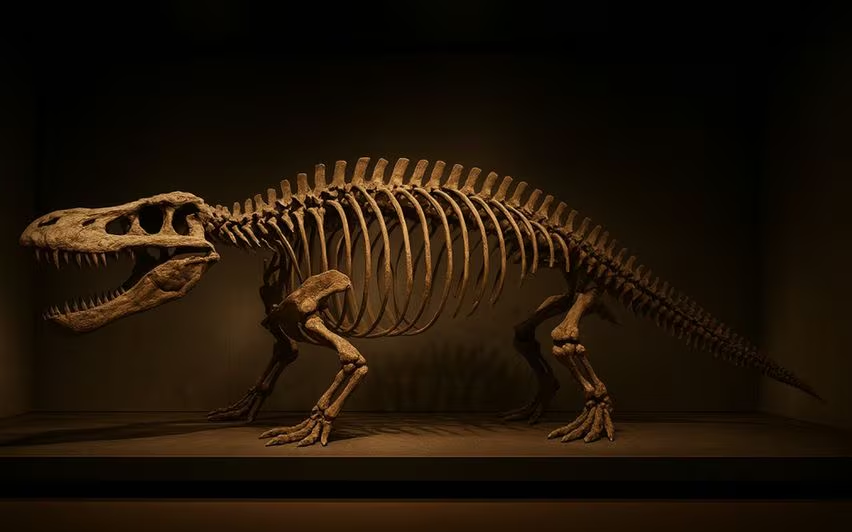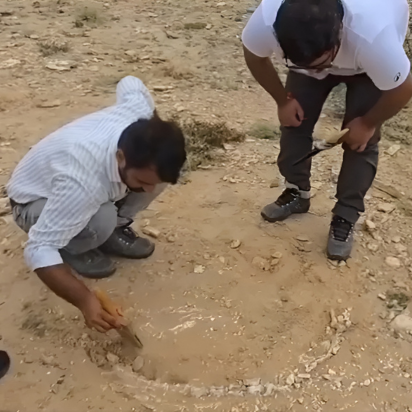When you picture Rajasthan, you probably think of sand dunes, camels, and forts shining in the sun. But here’s the twist! Recently, scientists uncovered a 200-million-year-old Jurassic fossil of a reptile called a phytosaur near Jaisalmer. And no, it’s not a dinosaur. Hidden under those golden sands is a secret from the Jurassic world.
All About The Jaw-Dropping Phytosaur Jurassic Fossil Unearthed In Rajasthan’s Desert:
Researchers in India have discovered the fossilised remains of a rare crocodile-like species from the Jurassic era in the western state of Rajasthan.
Meet the Phytosaur
The Jurassic fossil, known as a Phytosaurs, looked a lot like crocodiles, with long snouts and sharp teeth. However, this fossil belonged to their own family of reptiles. This one was about 1.5 to 2 metres long, making it the size of a small car.
They had short legs, wide, heavy bodies with rows of armoured scales, long tails, and long, toothy snouts. According to a study, the only obvious difference between crocodiles and phytosaurs is that crocodiles have their nostrils at the ends of their snouts, and phytosaurs have them on a raised hump in front of their eyes. Despite the strong similarities between phytosaurs and crocodiles, the two groups are not closely related.
According to reports, they lived in freshwater rivers and lakes, feeding on fish and other aquatic creatures that swam by. Moreover, alongside the skeleton, scientists also spotted a fossilised egg which could have belonged to the reptile.

Where Was This Jurassic Fossil Found?
The fossil was discovered in Megha village, close to Jaisalmer. This area is part of the Lathi Formation, which is renowned for preserving fossils from the Cretaceous period, the age of the dinosaurs. Locals first noticed unusual bones near a lake, and when experts took a closer look, they realised they were holding a once-in-a-lifetime discovery.

This fossil is special because:
- It’s the first well-preserved phytosaur fossil ever found in India.
- It proves Rajasthan wasn’t always desert; it once had rivers and watery landscapes.
- It helps scientists piece together how reptiles lived during the Jurassic period.
- In fact, experts say the area could become a fossil tourism hotspot, where people can travel to see real prehistoric treasures.
Also, read about Meet the “Hell Ant”: Oldest Ant Fossil Ever Found from Dinosaur Times
Subscribe To The Junior Age – Click here.





